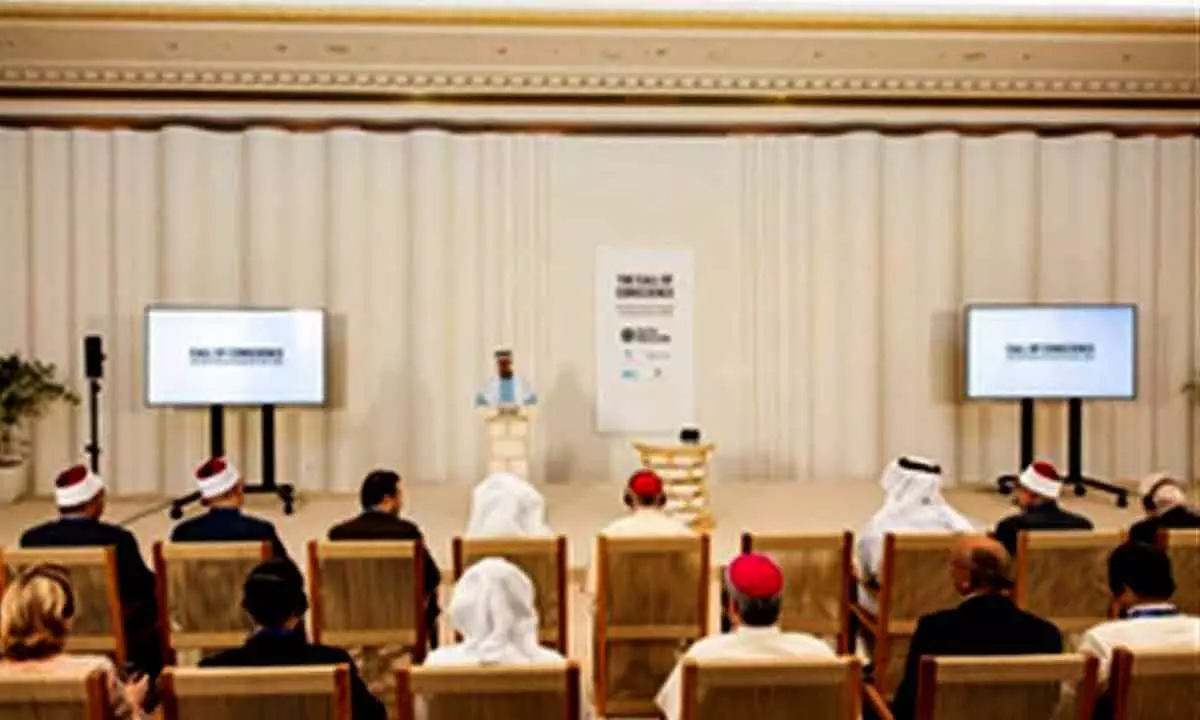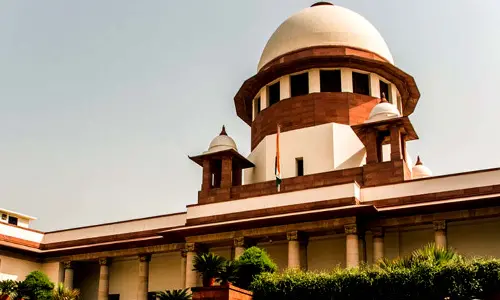Pope, Grand Imam call for robust climate action at COP28
Share :

His Holiness Pope Francis and the the Grand Imam of Al-Azhar, Ahmed Al-Tayeb have signed a declaration of support for urgent climate action, giving video addresses to the UN Climate Change Conference (COP28) at the inauguration of the Faith Pavilion with messages of urgency and hope for robust climate action.
His Holiness Pope Francis and the Grand Imam of Al-Azhar, Ahmed Al-Tayeb have signed a declaration of support for urgent climate action, giving video addresses to the UN Climate Change Conference (COP28) at the inauguration of the Faith Pavilion with messages of urgency and hope for robust climate action.
“Today, the world needs alliances that are not against someone, but for the benefit of everyone. It is urgent that religions, without falling into the trap of syncretism, set a good example by working together; not for their own interests or those of a particular group, but for the interests of our world,” said the Pope.
“Among these, the most important right now are peace and climate. Let us, as religious representatives, set an example to show that change is possible, to demonstrate respectful and sustainable lifestyles, and let us fervently ask the leaders of nations to preserve our common home. “
This is particularly requested by the little ones and the poor, whose prayers reach the throne of the Most High. For their future and the future of all, let us safeguard creation and protect our common home; let us live in peace and promote peace,” added the pontiff, who was unable to attend the Dubai summit in person because of illness.
The Grand Imam of Al-Azhar, the 1,000-year-old seat of Sunni learning in Cairo, in his message said: "... meant to cooperate with the UN and the UAE towards making the voice of religious leaders heard in face of challenges, especially climate change.
“This is a precious opportunity to enhance the efforts of protecting our common environment from imminent destruction, which is looming larger year after year.
“This threat is embodied in natural disasters, including an unprecedented rise in temperature, sweeping floods, devastating wildfires, and severe drought, and extinction of numerous living species, and the spread of epidemics and diseases.
"Islam has a specific position on the environment and its elements, starting with the earth, through all the living species on land, to all sea and air species. This position is succinctly embodied in the Divine Command directed to every human being, believer and non-believer, to reform the earth and all that is on it, and in the prohibition and warning against causing corruption to it or to any of its elements.
“The Noble Quran abounds with verses that urge respect for the environment and its elements, drawing on two perspectives: First is that the environment and natural elements constitute the clearest evidence that guides the mind to knowing Allah Almighty and believing in Him, which is indeed the best blessing ever for humanity.
“The second perspective is that all kinds of beings share the believing man his servitude to Allah Almighty. Hence, in the Islamic logic, humans are responsible for the environment, just as they are responsible for themselves and for their fellow human beings. In Islam too, special legislations address this specific issue.
“Allah Almighty has warned humans that if they make mischief on earth, they will suffer diseases, calamities and disasters in intensity proportionate to the inflicted corruption."
Held under the patronage of UAE President Sheikh Mohamed bin Zayed Al Nahyan, the inauguration of the Faith Pavilion was attended by UAE Minister of Tolerance and Coexistence Sheikh Nahyan bin Mubarak Al Nahyan; Vatican Secretary of State Cardinal Pietro Parolin, who was representing Pope Francis; and other global political figures and religious leaders.
The first-of-its-kind pavilion, co-hosted by COP28, the UAE Ministry of Tolerance and Coexistence, the Holy See, the UN Environment Programme (UNEP), the Muslim Council of Elders, and a coalition of faith partners, brings together religious leaders, officials, scientists and more to discuss the role of faith communities and religious institutions in addressing the climate crisis.







